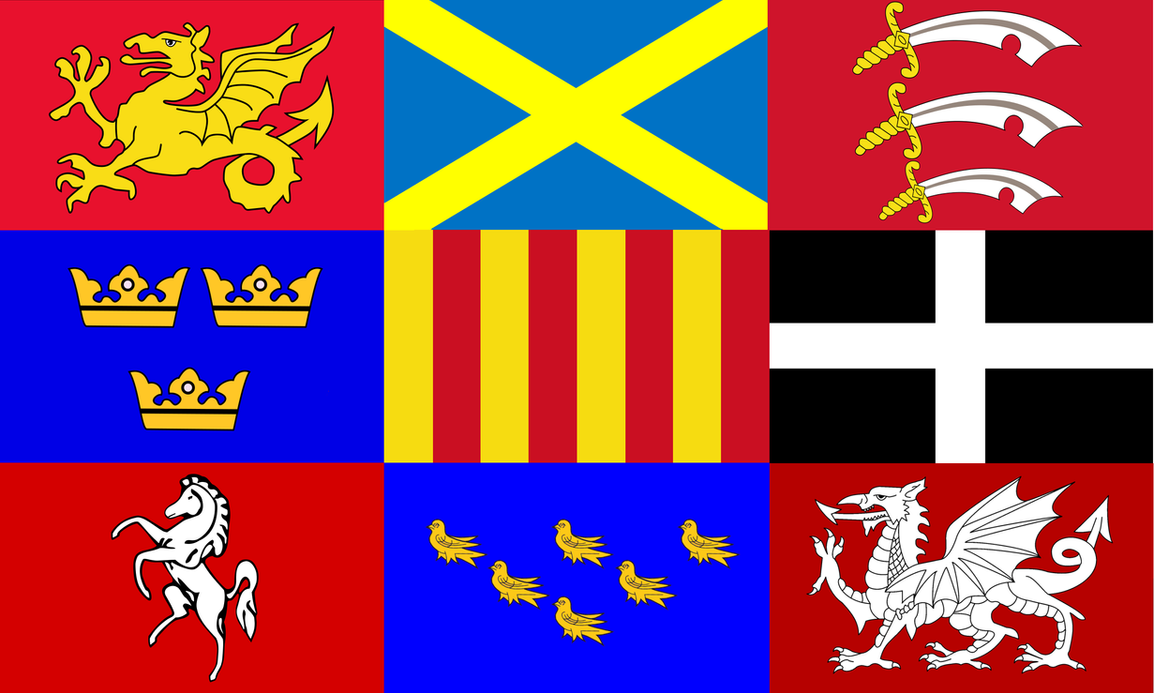WIP

Form of government:
Unitary parliamentary constitutional monarchy
Leader:
Monarch: His Majesty Æthelberht VII, Bretwalda of Jutaria-Anglia, King of Kent, High King of Eire, Ealdorman of Wales, Lord of Man, Emperor of India
High Minister: His Royal Highness King Eanfrith of Northumbria
Territories

Brief History: The Kingdom of the Kentish, latterly known as the Kingdom of Kent, was a political entity established after the Roman withdrawal from Britianna and the subsequent Angle, Saxon and Jutish settlement on the British mainland. Kent was the only major Jutish nation on the island, and was the most powerful 'Anglo-Saxon' state. It developed the first position of 'King', had a complete monopoly of cross-Channel trade, and was the first Kingdom to become Christianised.
Kent was so influential that scholars gave to the Kentish Royal House (later known as the House of Canterbury, after the Kentish capital), the title of bretwalda. This term essentially meant 'overlord', and signified the dominance of a particular Angle, Saxon or Jutish state on Britain. Kent retained this title for most of its existence, but lost it at times when other Kingdoms challenged its power.
Many historians have suggested that, had it not been for the actions of the Kingdom of Essex, Kent would have lost its power and ultimately been absorbed into larger states such as Wessex or Mercia. The true growth of Kentish power occurred due to the personal union of Kent and Essex under the Essex King in the early 8th century.
Advantages:
Disadvantages:

The Kingdom of Jutaria-Anglia
Form of government:
Unitary parliamentary constitutional monarchy
Leader:
Monarch: His Majesty Æthelberht VII, Bretwalda of Jutaria-Anglia, King of Kent, High King of Eire, Ealdorman of Wales, Lord of Man, Emperor of India
High Minister: His Royal Highness King Eanfrith of Northumbria
Territories

Brief History: The Kingdom of the Kentish, latterly known as the Kingdom of Kent, was a political entity established after the Roman withdrawal from Britianna and the subsequent Angle, Saxon and Jutish settlement on the British mainland. Kent was the only major Jutish nation on the island, and was the most powerful 'Anglo-Saxon' state. It developed the first position of 'King', had a complete monopoly of cross-Channel trade, and was the first Kingdom to become Christianised.
Kent was so influential that scholars gave to the Kentish Royal House (later known as the House of Canterbury, after the Kentish capital), the title of bretwalda. This term essentially meant 'overlord', and signified the dominance of a particular Angle, Saxon or Jutish state on Britain. Kent retained this title for most of its existence, but lost it at times when other Kingdoms challenged its power.
Many historians have suggested that, had it not been for the actions of the Kingdom of Essex, Kent would have lost its power and ultimately been absorbed into larger states such as Wessex or Mercia. The true growth of Kentish power occurred due to the personal union of Kent and Essex under the Essex King in the early 8th century.
Advantages:
Disadvantages:

